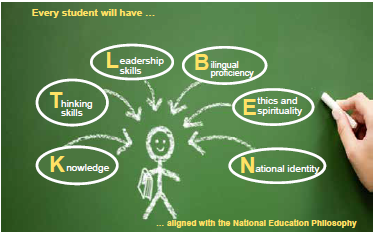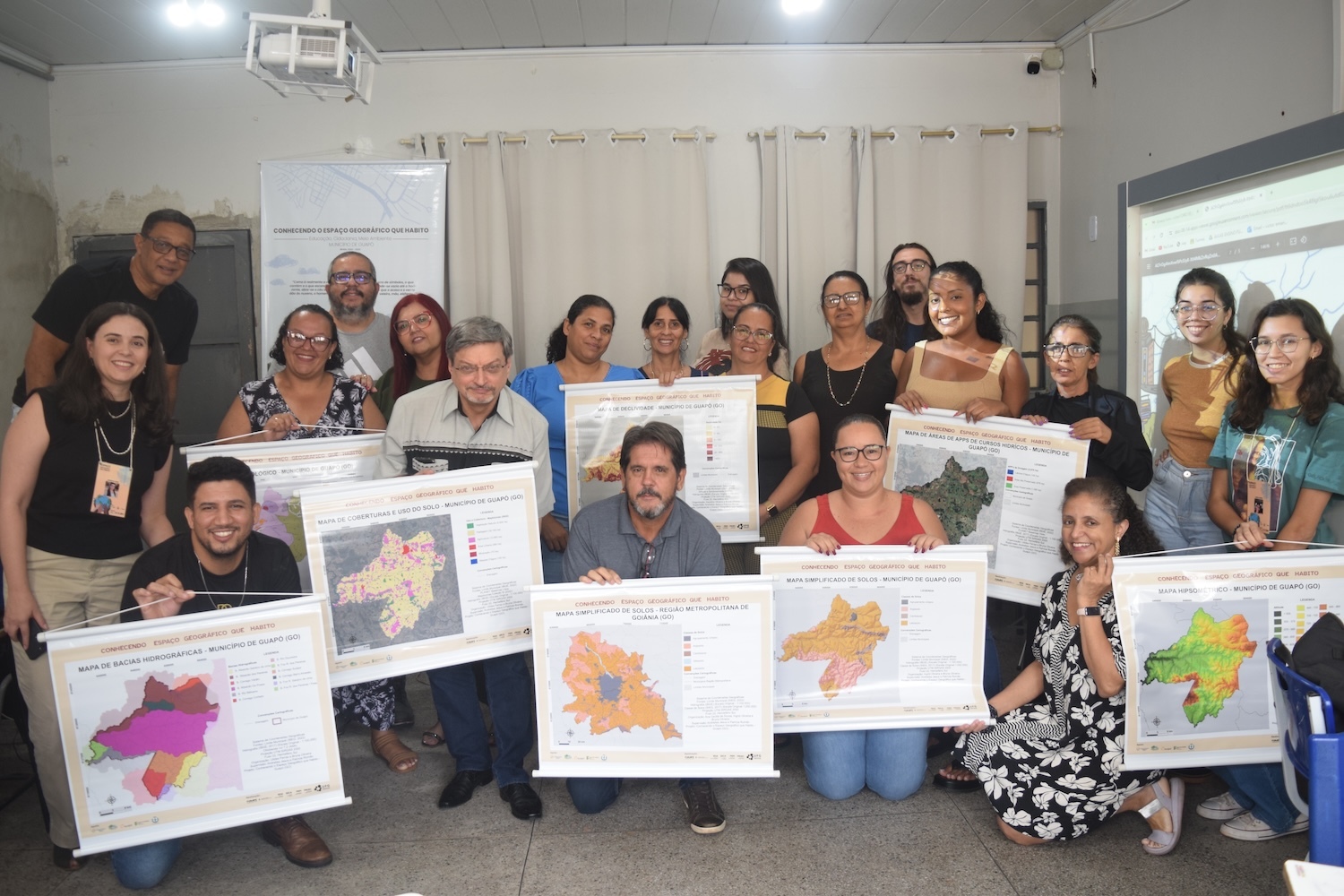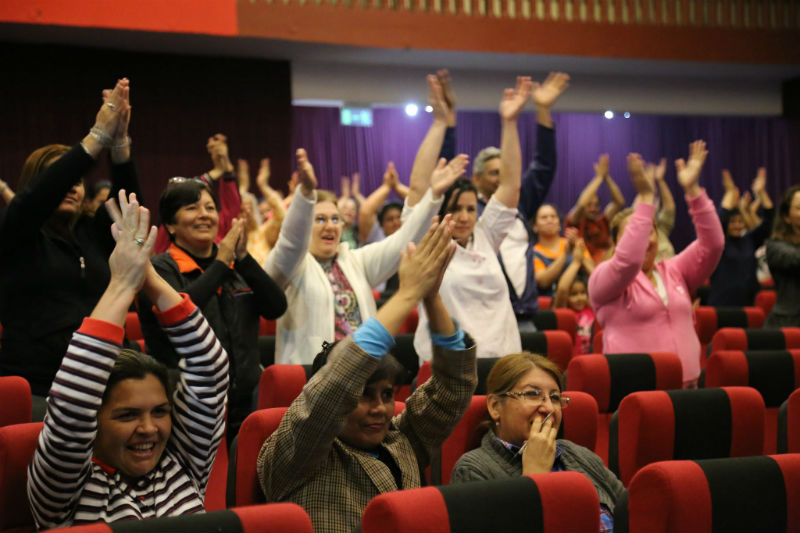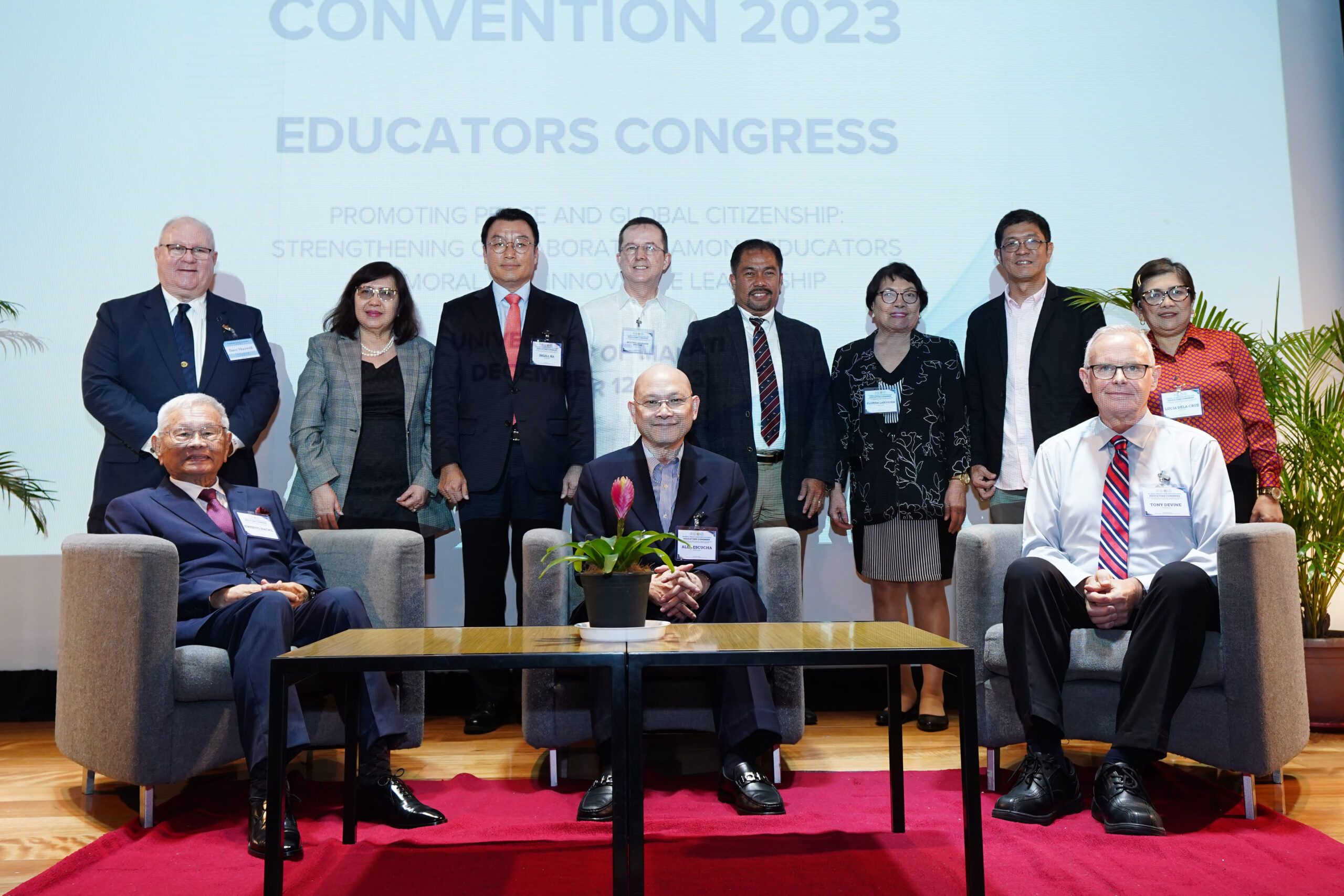 On September 10th, GPF-Malaysia hosted a forum entitled, “Re-Imagining Education in the 21st Century” as part of its ongoing dialogue series. Featured presenter Dr. Tony Devine, Director of the Education Division of the Global Peace Foundation, initiated a discussion between education stakeholders: teachers, principals, students, administrators, policy makers and business leaders, to envision education that prepares students to flourish in the coming century.
On September 10th, GPF-Malaysia hosted a forum entitled, “Re-Imagining Education in the 21st Century” as part of its ongoing dialogue series. Featured presenter Dr. Tony Devine, Director of the Education Division of the Global Peace Foundation, initiated a discussion between education stakeholders: teachers, principals, students, administrators, policy makers and business leaders, to envision education that prepares students to flourish in the coming century.
The discussion is timely as the Ministry of Education is beginning to implement the National Blueprint for Education Reform. In recent years, rising concern over Malaysia’s educational system inadequately equipping its youth to be successful both nationally and internationally raised a demand for evaluation and reform. In 2011, the Malaysia’s Ministry of Education formed a team of educators, administrators and government officials to assess and create a proposal for reform of the current system that issues the National Education Blueprint in late 2012.
The report shows that while overall funding, the percentage of the national GDP invested in education, has remained consistent and overall enrollment has increased (page 24), Malaysia’s educational performance on the international stage has dropped (page 26). The report also points out that the traditional system heavily focused the three “Rs”: Reading, wRiting and aRithmatic, but fell short cultivating students’ character and trade skills and civic and national identity.
The Blueprint lists six new areas of education: knowledge, thinking skills, leadership skills, bilingual Six areas outlined in the National Blueprint for Malaysian education reform.performance, ethics and spirituality, and national identity. It also outlines a road map to transform the education system in hope of making quality accessible to every child in Malaysia.
Teacher Empowerment Important for Successful Implementation of the National Blueprint
Datin Noorul Aini bt Ambak, Principal of Sri Aman Secondary School and the AJK of Secondary School Principals Council, acknowledged that the new blueprint is ambitious. The key to successful implementation, she told the audience, is that “teachers are given empowerment.” She explained that “the handbook is just a guideline, how to do it in the classrooms, it all boils down to the individual teachers’ interpretation.”
Speakers at the Character and Creativity Initiative forum on education in Malaysia.Raising a Generation of Entrepreneurs Ready to Open New Markets
Educaiton stakeholders envision future education.In the preface of the National Blueprint, Deputy Prime Minister and Minister of Education, Tan Sri Dato Haji Muhyiddin pledges to create better partnerships in order to diversify education options for Malaysia’s population, particularly to provide more vocational and experiential education and entrepreneurial creativity.
Ms. Veena Sidhu, a young CEO of Mindvalley Engage and Mindvalley Publishing said at the GPF-Malaysia discussion, “There are many schools out there doing things differently or using alternative ways; it is time for us to look at what others are doing and push humanity forward.”
To open new markets and to create products that have not yet been asked for requires creativity. To make an impact on the world, demands creativity guided by character. The Character and Creativity Initiative fosters life and character skills as the foundation of creativity.
The Character and Creativity Initiative has been successfully implemented in Kenyan secondary schools with measurable results, and has launched in Paraguay and Atlanta, Georgia in the United States. It is expected to start in Malaysia.



